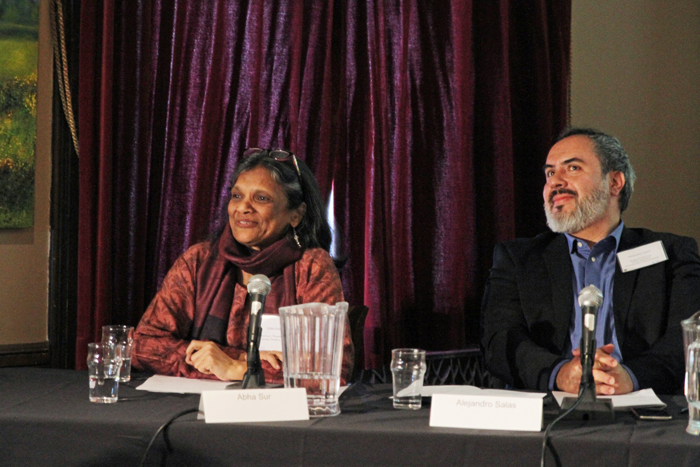On Nov. 22 and 23, McGill students and faculty joined activists at a conference titled “Unpacking Participatory Democracy: From theory to practice and from practice to theory,” presented by the McGill Institute for the Study of International Development. Activists from global organizations, including South Africa’s Open Democracy Advice Centre, the UK’s Integrity Action, and Germany’s Transparency International, were in attendance.
The event was organized by Aruna Roy, McGill’s 2016 Professor of Practice in Global Governance. Roy is a prominent activist who has led many socio-political movements in India, including the passage of legislation on the Right to Information and the Right to Employment. Speakers included indigenous human rights activist Ellen Gabriel and Hussein Khalid, executive director of HAKI Africa, an organization focused on combating corruption on the continent.
A recurring topic of discussion at the conference was the limitations of academic theories about democracy and how theory can be enhanced by real democratic movements in action. Activists in attendance shared their personal experiences with the struggles faced by their campaigns.
Against the backdrop of Donald Trump’s recent victory in the U.S. presidential election, Roy kicked off the conference with an opening speech encouraging discussion and discouraging disillusionment.
“The worst thing we can do today is to lose hope about the world and about democracy,” Roy said. “We need to rebuild and work harder.”
Panelist Anne Marie Goetz, professor at the Center for Global Affairs at New York University and former UN Women’s chief advisor on Peace and Security, discussed the ongoing struggle of women’s rights and appealed for immediate action.
“Misogyny is not a side-show,” Goetz said. “It is a central driver of destructive decision-making. Combating misogyny cannot be postponed until after peace, climate change or disarmament negotiations are over. As the anti-war activist Cynthia Enloe says, ‘Later is a patriarchal time-zone.’”
Panelist Vivek Ramkumar, senior director of Policy at the International Budget Partnership in Washington, D.C., said it is more important than ever for students to become involved in democracy.
“The timing [of the conference] could not be better,” Ramkumar said. “I think there is a sense of despair [….] There is the idea that we should disengage for the next few years because our side has lost. Students need to maintain optimism that they are agents of change and they will bring that change, but there is no easy way, and they must get involved.”
Edwina Shaddick, a recent McGill master’s graduate in Sociology, agreed that the conference helped restore some optimism about the future of democracy.
“It’s quite cathartic to come after the Trump presidency,” Shaddick said. “The conversations I’ve had with people are quite dire. Everyone’s reeling from the election. As [panelist] John Harriss said yesterday, this happened in the 1860s and 1930s, and now again we are at a time when we need to say no to fascism and pick the alternative of social democracy. It is important to know that it has happened before and people have fought it, and they will fight it again now.”
Roy said that if there is one message she would like students to take away from her conference, it is to engage with democratic politics.
“The big picture only changes if all the small pictures change, so nothing is too small for engagement with democratic action,” Roy said. “It is just defining justice, equality and the principles of ethics. Do it wherever you are. It adds up.”









